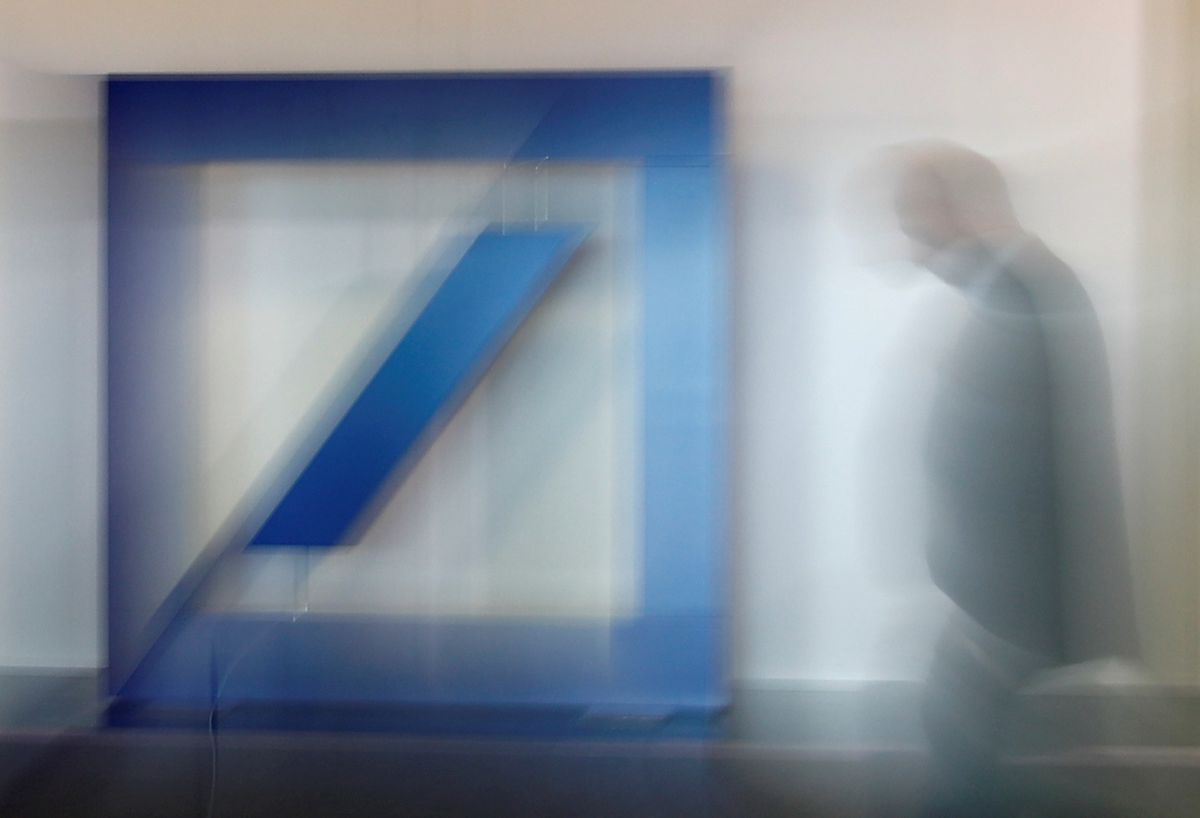Everything you need to know about Deutsche Bank’s “massive” Ponzi scheme lawsuit

A few minutes every morning is all you need.
Stay up to date on the world's Headlines and Human Stories. It's fun, it's factual, it's fluff-free.
Prosecutors said the schemers used fake companies with Deutsche Bank accounts to conduct the Ponzi scheme, including raising additional cash from investors for businesses that no longer existed.
Who is Deutsche Bank?
- Founded in 1870, Deutsche Bank AG’s headquarters are located in Frankfurt, Germany, and it is considered the 21st largest bank in the world by total assets.
- The bank has a presence in 58 countries and provides everything from private accounts, business accounts, investments and assets management.
- Deutsche Bank has been considered one of the major players that led to the housing market crash during the 2007 global financial crisis (GFC), accounting for nearly US$32 billion worth of debt from the crash.
- In fact, the bank’s former head of asset-backed security trading, Greg Lippmann, profited heavily from the financial crisis and was a central figure in the 2015 film The Big Short portrayed by Ryan Gosling.
- it’s no secret that Deutsche Bank is no stranger to controversy, but the bank’s most recent actions have implicated their involvement in a Ponzi scheme.
What is a Ponzi scheme?
- Here’s the one thing that you can be sure of – if anything contains the word scheme in it, it probably isn’t a good thing, and this isn’t any different.
- A Ponzi scheme is a fraudulent investment scheme that isn’t that different from the more familiar pyramid scheme, with the goal being to use late investors to back earlier investors.
- Think of it like this: A schemer tells Person A that if they give them US$500, they will turn it into US$1000 in 2 days. Person A gives them money, and the schemer offers the same proposition to Person B.
- The schemer then takes the money given to them by Person B and offers it to Person A, giving them their US$1,000. The schemer will then either need to find a new investor or convince person A to invest more to pay back Person B.
- And this just keeps happening until the schemer can’t find any new money.
- The scheme was named after Charles Ponzi who used a very similar method to generate US$20 million after only about a year in the 1920s, and it seems as if Deutsche Bank is involved in a similar incident.
What is Deutsche Bank being accused of, exactly?
- Despite red flags and Securities and Exchange Commission (SEC) sanctions against certain bank accounts, Deutsche Bank continued to work with these accounts, which were owned by groups that conducted suspicious activity.
- This blind eye turned toward these illegal activities has led to hundreds of millions lost from two Cayman Island investment funds.
- The two now-bankrupt investment funds opened up a lawsuit against Deutsche Bank, and prosecutors have identified the method in which the Ponzi scheme occurred right under the bank’s nose.
- Prosecutors said the schemers used fake companies with Deutsche Bank accounts to conduct the Ponzi scheme, including raising additional cash from investors for businesses that no longer existed.
- Much like the Ponzi scheme scenario described above, the new money from investors was used to pay off older debt and investors.
What comes next for the bank?
- Considering how much the bank has gotten away with in the past and its position as a systemically important bank, it’s hard to imagine anything happening to the bank other than a slap on the wrist and a hefty fine, similar to past situations.
- A systemically important bank is a financial institution whose failure could trigger a global financial crisis much like how the Lehman Brothers declaring bankruptcy placed the entire world under financial duress in 2007.
- Deutsche Bank is considered one of these banks by the Financial Stability Board, so regardless of what legal repercussions the bank may face, the bank will ensure safety to keep the world financial market secure.
- This doesn’t mean that the bank will not face any consequences. In January of this year, the bank had to pay US$130 million in a separate fraud scheme that was also the result of the bank not paying more attention to illegal activities within the bank’s accounts.
- “Deutsche Bank engaged in a criminal scheme to conceal payments to so-called consultants worldwide who served as conduits for bribes to foreign officials and others so that they could unfairly obtain and retain lucrative business projects,” stated Acting US Attorney Seth D. Ducharme of the Eastern District of New York regarding the fraud case from earlier this year.
- “This office will continue to hold responsible financial institutions that operate in the United States and engage in practices to facilitate criminal activity in order to increase their bottom line.”
Have a tip or story? Get in touch with our reporters at tips@themilsource.com




Comments ()